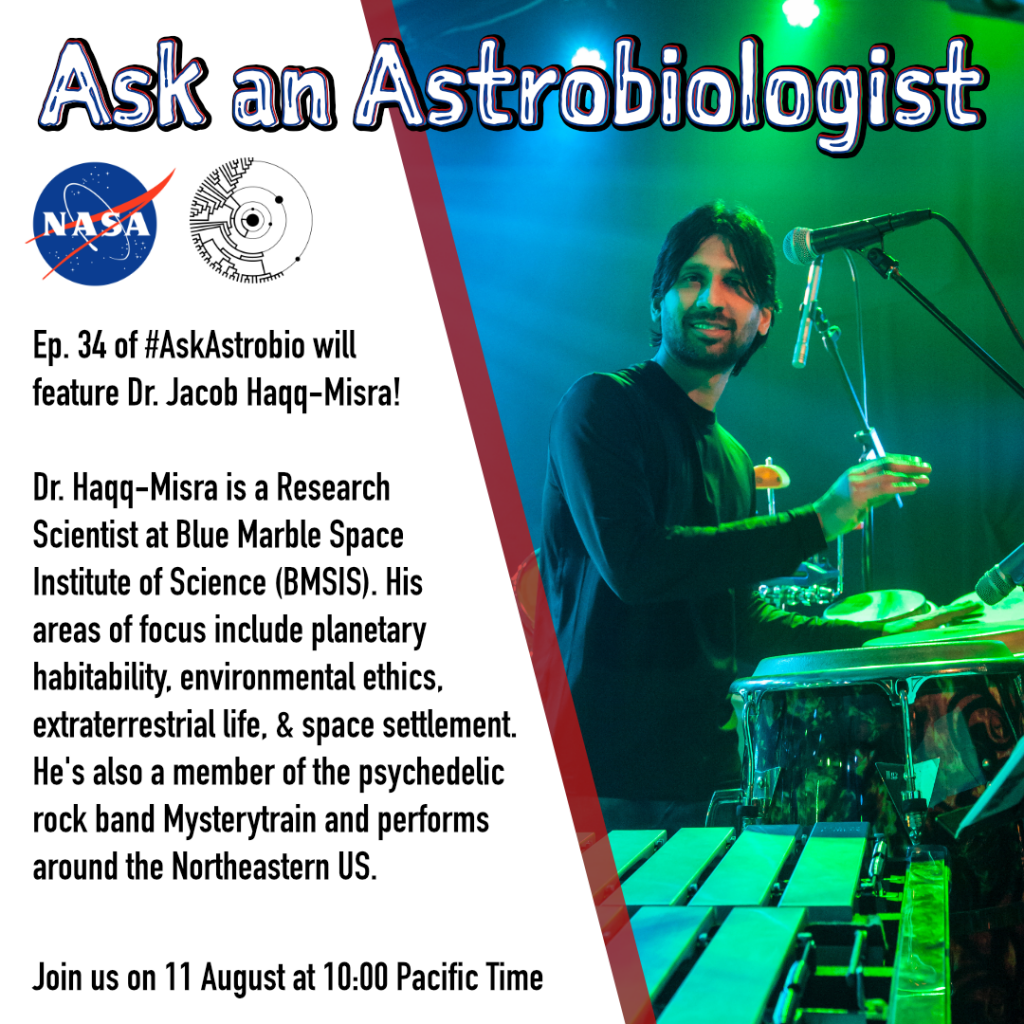Science in Philosophy, Philosophy in Science – Dr. Jacob Haqq-Misra
By Kurt Ger
Jacob Haqq-Misra is a research scientist at Blue Marble Space Institute of Science. His areas of focus include planetary habitability, atmospheric dynamics, environmental ethics, extraterrestrial life, and space settlement (he has an upcoming book on the subject with the University Press of Kansas). He completed his Ph.D. in meteorology and astrobiology (2010) and his M.S. in meteorology (2007) from Penn State University. He also holds degrees in astrophysics and computer science from the University of Minnesota (2005). Jacob is a member of the American Geophysical Union and the International Astronomical Union. He serves on the METI International advisory council and the IAA SETI Permanent Committee. He also participates in public outreach events and is periodically interviewed for science news, radio, and television.
At least, that’s what his website will tell you. What it might not tell you is how his set of skills and knowledge have been a long time in the making:
I’ve always been the kid who was into space since I was little, so I remember getting a book called “My First Book About Space”. It had a lot of interesting figures like how long it would take to walk around the whole Earth, or how many Earths would fit inside the Sun. I got interested in stuff like that, and even the last chapter was about “Is there life elsewhere? We don’t know, maybe someday you’ll figure it out”. Astrobiology is about thinking about these big questions, like “where did life come from”, or the future of life on Earth, or whether or not there’s life elsewhere. I was also raised a Fundamentalist Christian, and I believed all of it for 27 years of my life, so I was approaching very big-picture questions from the religious perspective for a long time, but I was interested in science as well. I saw them working together in many ways, and although I’m not a Christian anymore, I’m still interested in the question of what’s out there, and I don’t think about God being out there in the way I used to, but what other higher intelligences or entities or whatever beings that could certainly be beyond our comprehension, but how could we try to think about what’s out there. So here I am, an astrobiologist now.
His path to his position today considered, approaching science from a philosophical angle being a big part of his mentality should come as no surprise:

I think the coolest thing right now is that we’re actually at a point where we can even think of the idea of looking for alien technology. That used to be a purely philosophical question. We now know there are exoplanets, or at least one planet per star, so we can ask questions like what would be in a planet’s atmosphere that would be indicative of life, or technology. In my opinion, the only thing that would be cooler would be if we had instruments like telescopes and spectrometers already gathering data. The fact that we’re able to construct scientific problems out of previously philosophical questions is really exciting.
Jacob enjoys playing music as a drummer and vibraphonist: he is a member of the psychedelic rock band Mysterytrain performing around the Northeastern region.
I’ve played in Mysterytrain for about eleven years now, I play percussion. I also met my wife and a lot of great people in the band I wouldn’t have met otherwise.
From Fundamentalist to astrobiologist, Jacob’s origin story is an inspiration- it’s never “too late” at any point in life to give in to your curiosity about science, science and religion don’t have to conflict, and doing science doesn’t have to stop you from pursuing art.
You can find Jacob on Twitter (@haqqmisra), or listen to Mysterytrain on their website.
Kurt Ger is a student at Colgate University and a Research Associate with the BMSIS Young Scientist Program.
